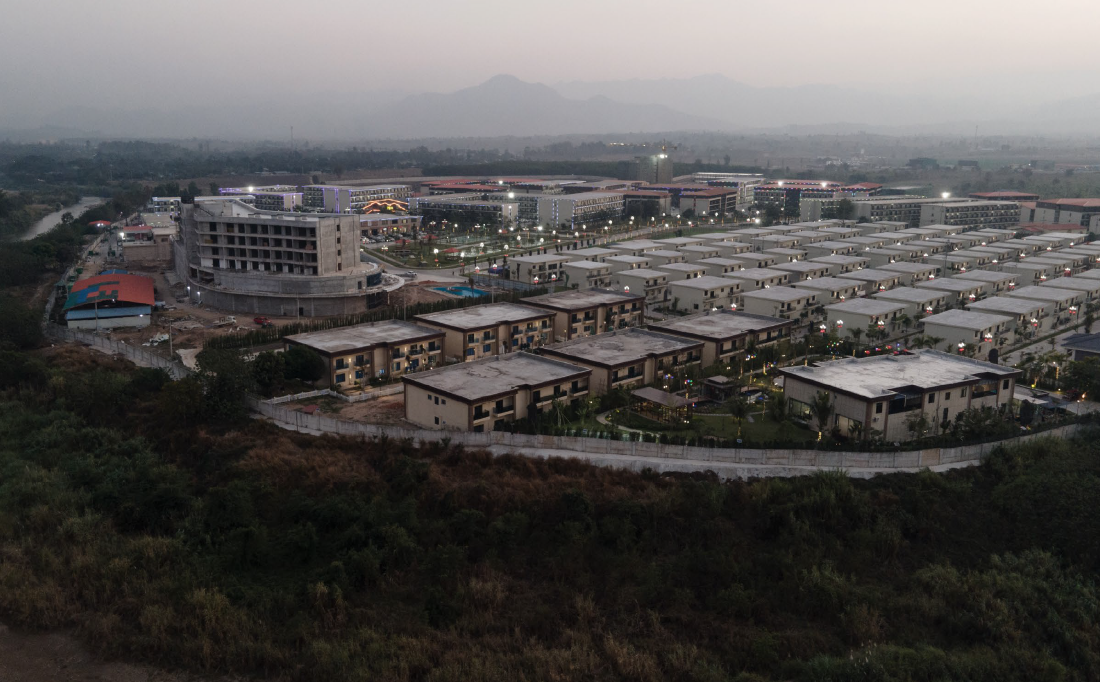Lured by the promise of well-paid jobs and better living conditions, thousands of young Asians and Africans end up kidnapped and locked up inside huge compounds, guarded by armed men at the border between Myanmar and Thailand. There, they are forced to sit at a computer for over 12 hours a day and perform online scams targeting victims in Europe or the United States.
That is the finding of this cross-border investigation, which exposed how tens of thousands of Nepalese, Ugandans, Moroccans, Vietnamese and Ethiopians are held hostage in scam centers run by different Chinese mafia groups.
The trafficked labourers were offered marketing jobs in Bangkok. But when they arrived at the airport after an exhausting trip, they were pushed into vans and driven to the Myanmar border. Once inside, there is no way out. Workers who try to rebel are beaten, deprived of food, tortured and sometimes murdered.
In this remote area of the Myanmar jungle, no laws apply. After the military junta seized power in Myanmar in February 2021, dissident armed groups and ethnic armies rose against the generals, and large portions of the territory – up to 70 percent, according to the rebel groups – are no longer under the control of the central government.
The land located on the border between Thailand and Myanmar remains under the control of numerous, often shady and ever-changing armed groups. The Chinese mafia negotiates directly with them to be allowed to operate with absolute impunity, as Burmese militias serve as security guards in the scam centers.
The team of journalists was able to enter one of the compounds, where a casino and several entertainment facilities aim to attract Chinese tourists. They talked to former cyber slaves, victims, Burmese militiamen, police officers and civil society activists.
They found that operational details vary from one group to another, but they all use cryptocurrencies to extort money from victims.
One of the most popular schemes is a refined version of the tried-and-tested romance scam. Scammers find potential victims on dating apps or social media, start a romantic or friendly relationship with them and try to spark their interest in investing in cryptocurrencies. Russian and Ukrainian young women often act as “models”, lending their faces to be edited into various photos and taking video conference calls.
“I was supposed to be an accomplished but war-scarred Ukrainian businesswoman,” one former forced scammer from Ethiopia told the journalists. “In between intimate conversations, I had to talk about the success of my investments so that the victims would want to know more until they themselves asked me to help them invest.”
The scripts are elaborate, playing on the emotions and loneliness of the men targeted. Those performing the scams must have a deep understanding of the Western way of life and geography. They receive real-time reports on the weather in London or Paris, to be able to send credible photos of trendy restaurants, bars and surroundings.
Such online scams defrauded people of more than $16 billion worldwide in 2024, according to a recent FBI report.
Police struggle to tackle the scourge due to its industrial scale. According to the United Nations Office on Drugs and Crime, more than 300,000 people are working under similar conditions in Southeast Asia, in centres operated by Chinese rings. The absence of a formal state authority in war-stricken Myanmar makes it difficult to organise official rescue operations.
As their operations continue to grow, the criminals are using more sophisticated operating models backed by the rise of AI tools, which allow them to reach more scam victims and launder larger amounts of money in a shorter time. These huge cash flows contribute to reshaping the economies of several countries in Southeast Asia.
